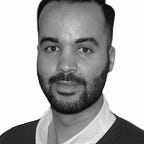When It Rains, It Pours: Discovering Cancer During COVID Times
And why family is the cure
Hello, Miss? I’m calling from the hospital. I have here the results of your breast exam. I’m sorry to tell you; you have cancer.
Those words struck one relative of mine like a train. After the doctor’s news, her legs started shaking, her head spinning, her vision getting dizzy. First, the mental shutdown: “I will not listen to another word.” Then the emotional breakdown, with large tears rolling down her face, screaming, “Why me? Why now? Why?” Both knees and cell phone hit the floor.
Rewinding two months before the untoward phone call, she had the first signs of what would become the most defying journey of her life. Like most women after the age of 40, she did annual breast cancer screenings via mammograms to make sure those “off-and-go” breast lumps that occasionally appear would not be an indicator for something worst.
For 15 years, she had those lumps and asked the doctor for the traditional exams. During those 15 years, she built the idea it was normal for her body to behave like that, having lumps that would disappear after some time. During those 15 years, the results were always negative. The annual mammograms confirmed what her head defined as an absolute truth. “This is nothing for me to worry about.” Until June-2020.
Oddly bigger than the usual ones, a lump made her family doctor suspicious, leading to a more detailed breast exam. Previously, she did all her exams in the neighborhood clinic; now, she would go to the most respected oncology hospital in Portugal. Even though she didn’t have any tangible result whatsoever, she started to think, this must be serious for me to be here.
At this point, we need to frame the story with COVID-19’s impact, so we understand the norm before the pandemic and how are hospitals nowadays managing cancer patients:
- Before COVID-19, when the exam results are out, the hospital summoned the patient to meet a doctor and a psychiatrist face-to-face while receiving the bad news. This dynamic duo is responsible for providing insightful information about diagnosing and treatment plans and providing a safety net so the person can cope mentally & emotionally with a terminal illness.
- After COVID-19, physical engagement isn’t advised, and communications shall be done via phone call… Physical attendance only exists when you need to perform a treatment or when you have an exam.
Although thinking a “Hello, you have cancer, good afternoon” phone call is downright obnoxious, inhuman, and empathy absent, I’m not here to judge the method but to disclose the impact. Put yourselves in the shoes of a +60 years old woman, grandmother of 2 beautiful baby girls. Now imagine dedicating your life to take care of those baby girls, nurturing, teaching, caring, and loving them every day of your life. After, imagine the mental exhaustion to manage social distance during the virus outburst, away from your overall family, especially from those precious baby girls.
Imagine the emotional distress of using digital platforms to seek contact but still missing that one kiss or hug that would make your day and give you the strengths to overcome any obstacle. And for last, imagine now receiving a phone call telling you: “you have cancer”…
Not easy to cope.
Fast-forwarding six months after the phone call, she’s now reaching the final stages of chemotherapy. The journey had ups & downs, with shallow moments when she thought about quitting and leaving her destiny to chance. There was a time, before the pandemic, in which one would’ve been able to hold hands with their loved ones before undergoing chemotherapy sessions. Nowadays, you wait alone in the living room. And so, she did. She endured. She stayed alone in the living room, absorbed by her feelings, thoughts, and a cell phone. The same cell phone that received the bad news is now a ‘close friend’, a window open to the Internet, to ease the mind while waiting for a new physical aggression dose.
In all those moments, she had a clear purpose: she was (is!) enduring it all to make sure she will have a bright future close to her family. The opportunity to see her baby girls smile again, to be able to hug them, and take them to the playground in a covid-free world, is all the motivation she needs. Right now, she’s much closer to that reality than she was six months ago. It doesn’t depend solely on her, but she's doing all she can when it comes to her part.
I finish with a sense of not doing enough justice to what this person suffered and overcame so far. But one thing is exact: her problems did not define her; her actions did.
She decided to fight for her life.
She decided neither covid nor cancer would stop her.
She decided to do everything she can to spend one more day with her baby girls.
And we are all proud, humbled, and inspired by who she is.
